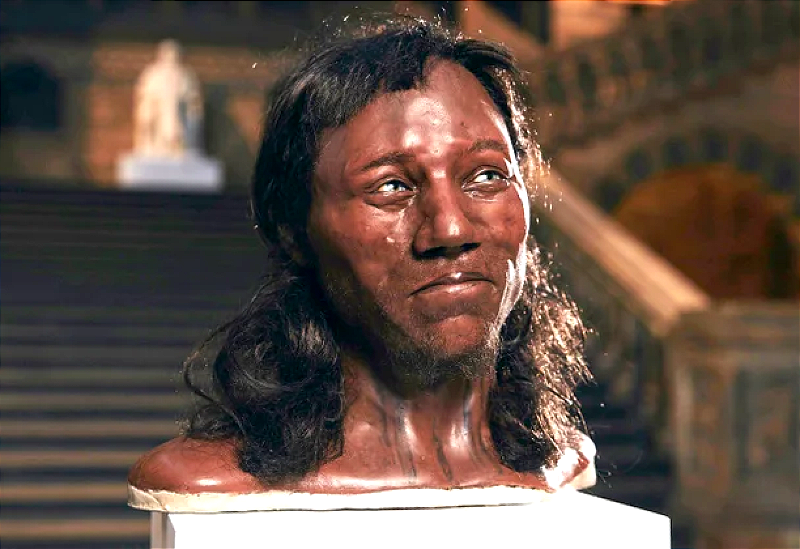When your last name is Null nothing works properly

From the WSJ: "Nontra Yantaprasert couldn’t wait to take her husband’s shorter and easier-to-pronounce last name. She didn’t know what kinds of problems it would cause.His last name is Null, the same word used by computer scientists to mean “no value” or “invalid value.” The Nulls of the world, it turns out, endure a lifetime of website bouncebacks, processing errors and declarations by customer-service representatives that their accounts don’t exist. After becoming a Null, she was due to travel to India in 2014 on a nonrefundable flight for a friend’s marriage, but her visa hadn’t arrived in the mail. The Indian consulate told her it had tried multiple times but the computer system couldn’t process her last name, she said. Null was first coined 60 years ago by a British computer scientist and has since been incorporated into many of the systems that make American commerce run, from hotel reservation sites to government agencies."
This French widow created the modern champagne market almost singlehandedly

From the Smithsonian: "Highlighted by its distinctive gold-yellow label, a bottle of Veuve Clicquot champagne is hard to ignore. In 2012, it was the second highest selling brand of champagne in the world, with 1,474,000 nine-liter cases sold worldwide. But Veuve Clicquot wasn’t always so successful: if it weren’t for the efforts of a cunning 19th-century business mind, the champagne might never have existed. That remarkable mind belonged to the eponymous Widow (veuve in French0) Clicquot, one of the world’s first international businesswomen, who brought her wine business back from the brink of destruction and invented a process that helped create the modern champagne market as we know it. By the time she died in 1866, Veuve Clicquot was exporting champagne to the far reaches of the world, from Lapland to the United States."
Researchers say most Europeans had dark skin until fairly recently

From ZME Science: "For decades, scientists assumed that the first modern humans to arrive in Europe, around 45,000 years ago, quickly evolved pale skin to adapt to the region’s dim sunlight. The logic seemed straightforward: lighter skin allows more ultraviolet light to penetrate, helping the body produce vitamin D, a nutrient essential for human health. However, a new study of ancient DNA challenges this long-held assumption. By analyzing the genomes of 348 individuals who lived between 45,000 and 1,700 years ago, researchers have uncovered a surprising truth: for most of Europe’s history, the majority of its inhabitants had dark skin. Only around 3,000 years ago did lighter skin tones become dominant. For much of the tens of thousands of years covered by the sampled DNA in the new study, 63% of ancient Europeans had dark skin, while only 8% had pale skin. The remaining individuals fell somewhere in between."
Hi everyone! Mathew Ingram here. I am able to continue writing this newsletter in part because of your financial help and support, which you can do either through my Patreon or by upgrading your subscription to a monthly contribution. I enjoy gathering all of these links and sharing them with you, but it does take time, and your support makes it possible for me to do that. I also write a weekly newsletter of technology analysis called The Torment Nexus.
This Italian physicist discovered the existence of neutrons and then mysteriously disappeared

From IFLScience: "From when he was a small child, it was clear Ettore Majorana was going to be a brilliant mathematician or physicist. Born in Sicily in 1906, Majorana completed high school early, before heading to Rome to study engineering and then physics, under the supervision of Nobel Prize-winning physicist Enrico Fermi. Fermi – awarded the prize "for his demonstrations of the existence of new radioactive elements produced by neutron irradiation" – was impressed by his student, who became his colleague. In his short career, Majorana achieved a lot. In a universe where Majorana was more inclined to publish his work, he might even have won a Nobel Prize for discovering the neutron (which was actually given to James Chadwick in 1935). Then, in 1938, he disappeared, after writing a note that he sent to the head of the Naples Physics Institute, explaining that he would not be returning."
This homeless LA musician helped create a Daft Punk classic but hasn't seen a dime

From the LA Times: "On the night of Jan. 26, 2014, Thomas Bangalter and Guy-Manuel de Homem-Christo of Daft Punk leapt onto the stage at Staples Center to accept the Grammy for album of the year.Even though the French electronic duo’s faces were hidden behind white and gold robot masks, they couldn’t hide their elation as they waved back to cheers from Jay-Z, Taylor Swift and Kendrick Lamar. Their album “Random Access Memories” and its smash single “Get Lucky” were crowning achievements in a career of immaculately produced dance music, played at pop-star scale.Meanwhile, somewhere in the flatlands of L.A., far from the limos and gowns at Staples Center, Eddie Johns bedded down for the night.Johns doesn’t remember exactly where in L.A. he was living back then, but it was almost certainly somewhere bleak. The Liberian-born singer, now 70, struggled with homelessness here for more than a decade; he had a stroke 10 years ago that left him unable to work and forced him onto the streets or into shelters."
These kinetic structures made by Theo Jansen are powered by the wind
These 'Beach Animals' were created by Theo Jansen as a fusion of art and engineering. The kinetic structures walk on their own and get all their energy from the wind.pic.twitter.com/1m2JvPXUSB
— Wonder of Science (@wonderofscience) February 20, 2025
Acknowledgements: I find a lot of these links myself, but I also get some from other newsletters that I rely on as "serendipity engines," such as The Morning News from Rosecrans Baldwin and Andrew Womack, Jodi Ettenberg's Curious About Everything, Dan Lewis's Now I Know, Robert Cottrell and Caroline Crampton's The Browser, Clive Thompson's Linkfest, Noah Brier and Colin Nagy's Why Is This Interesting, Maria Popova's The Marginalian, Sheehan Quirke AKA The Cultural Tutor, the Smithsonian magazine, and JSTOR Daily. If you come across something interesting that you think should be included here, please feel free to email me at mathew @ mathewingram dot com



